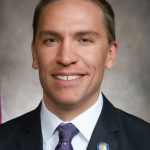Gov. Evers, DHS Continue Administration’s Efforts to Combat Lead Poisoning Statewide with Permanent Rule
Rule continues governor’s efforts during 2025 Year of The Kid to ensure clean, safe drinking water for kids and families, get lead hazards out of service lines, homes, and schools
MADISON — Gov. Tony Evers announced the Wisconsin Department of Health Services (DHS) has finalized a new rule, making permanent an emergency rule that the governor approved in January, to combat lead poisoning statewide by lowering the lead poisoning threshold to 3.5 µg/dL. By lowering the lead poisoning threshold, more kids and families will be eligible for lead poisoning and intervention resources, including education programming, screening, care coordination or follow up services for kids not covered by a third-party payer, and other activities related to poisoning or exposure.
No level of lead is considered safe for kids. According to the CDC, even the smallest exposure to lead in childhood can have serious, long-term consequences and can even “reduce a child’s learning capacity, ability to pay attention, and academic achievement.” Additionally, a 2019 study of kids across several early grade levels found that even low-level lead exposure during early childhood can affect a kid’s achievement, including reading and math scores. It also showed that even physically maturing and additional schooling “are not sufficient to offset the damage caused by early childhood exposure.”
In 2021, the CDC lowered the blood lead level at which it recommends intervention in cases of lead poisoning to 3.5 µg/dL from 5 µg/dL. According to DHS, between November 2021 and February 2024, approximately 3,272 kids had blood lead levels between 3.5 and 4.9 micrograms per 100 milliliters of blood, but they did not qualify to receive environmental intervention services. DHS estimates that about 1,400 kids are expected to have a blood level between 3.5 and 4.9 micrograms of lead per 100 milliliters of blood in 2025, and this rule allows those kids to be eligible for environmental intervention services.
In order to support the expanded eligibility for environmental intervention services for lead poisoned kids under DHS’s rule approved by Gov. Evers and address this serious concern for the health and well-being of Wisconsin kids, Gov. Evers also announced his 2025-27 Executive Budget would’ve provided over $6 million over the biennium to increase grants to local health departments to support lead poisoning intervention and response. Each health department would have received at least a $40,000 increase, with an average award increase of $50,700, and jurisdictions with more cases of lead poisoning would receive more funding. Unfortunately, Republicans on the state’s budget committee removed this provision from the governor’s budget, as well as other efforts to ensure clean, safe drinking water, as highlighted below.
Ensuring Clean, Safe Water at Home, School, and in the Community
According to a 2023 report from the Wisconsin Policy Forum, more than 37,000 lead service lines have been replaced or turned off since 2018, which is more lines replaced or turned off in just five years than in the previous two decades. The report further states that while “this trend represents massive progress from previous decades, these service lines still lurk underground in scores of communities across the state,” underscoring the urgent need to address this issue, most especially in spaces that care for Wisconsin’s youth and kids, such as schools, daycares, and more. At least 134,000 households in Wisconsin are still served by lead service lines, and local communities need support from the state to remove and replace these lead service lines.
The governor’s 2025-27 Executive Budget proposed investing more than $300 million to help get lead out of Wisconsinites’ pipes, bubblers, schools, homes, and child care centers for good. Unfortunately, Republicans in the Wisconsin State Legislature recently gutted the governor’s efforts to clean up lead, PFAS, and other harmful contaminants statewide and rejected hundreds of millions of dollars in investments to ensure kids, families, and farmers have access to safe and clean drinking water. Republicans on the state’s budget committee voted against:
- Modifying statutes to allow utilities to provide financial assistance in the form of 100 percent grant funding for the replacement of lead service lines (LSL) for property owners. Current law restricts utilities from providing more than 50 percent of the cost of replacing lead service lines as principal forgiveness, essentially grants, meaning all property owners, regardless of income, pay a portion of replacing their own water service lines if they contain lead. The cost of replacing a customer-side LSL varies by location but generally ranges from $2,000 to $6,000 per line. This is cost-prohibitive for many low-income customers and potentially places them at risk of service disconnection;
- Investing $7.1 million specifically to aid in-home child care providers across Milwaukee County in ensuring lead-free drinking water for their facilities;
- Proposing a $200 million investment to accelerate the removal of lead service lines across the state. This investment will increase the capacity for communities to remove these lines quicker to protect Wisconsin households;
- Providing grants to school districts and independent charter schools to replace water fountains with water bottle filling stations with filtration systems to reduce contaminants in water, including lead and chlorine, through a $250,000 investment through his “Healthy Meals, Healthy Kids” initiative; and
- Increasing grants to local health departments to support lead poisoning intervention and response with a more than $6 million investment, as mentioned above.
In addition to drinking lead-poisoned water, lead poisoning among kids is typically caused by swallowing or breathing in dust from lead-based paint in homes that were built before 1978. Therefore, Gov. Evers recommended relaunching the Windows Plus Program with a $100 million investment to support lead-safe renovations in schools, homes, and child care centers. This important investment was also removed by Republicans in the Legislature.
Republicans on the state’s budget committee also voted to eliminate proposals that would have invested over $145 million to address PFAS contamination across Wisconsin, from private well owners to municipalities, and across surface, drinking, and groundwater, including:
- Using $125 million of already-approved funds to provide grants to municipalities for the investigation and response to PFAS contamination statewide;
- Protecting innocent landowners like farmers who unknowingly spread biosolids containing PFAS;
- Helping private well owners sample and test their private wells through a county well testing grant program;
- Supporting additional PFAS sampling, testing, and research statewide;
- Investing in emergency resources to provide safe, bottled water to households and communities impacted by PFAS contamination; and
- Eliminating barriers to rulemaking efforts to establish Wisconsin’s first-ever enforceable standards for PFAS in groundwater. After Republicans having blocked this rulemaking twice, the Evers Administration is now undertaking its third attempt to establish this crucial protection.
NOTE: This press release was submitted to Urban Milwaukee and was not written by an Urban Milwaukee writer. While it is believed to be reliable, Urban Milwaukee does not guarantee its accuracy or completeness.
More about the Lead Crisis
- Rep. Madison Proposes Restoring Local Control Over Lead Inspections - State Rep. Darrin Madison - Jan 6th, 2026
- $43 Million Later, MPS Says Classrooms Are Safe From Lead Dust - Corrinne Hess - Dec 18th, 2025
- MPS Buildings Cleared of Lead-Paint Risks after 10-Plus Months of Work - Milwaukee Public Schools - Dec 17th, 2025
- Wisconsin Moves to Require Lead Service Lines Replaced By 2037 - Danielle Kaeding - Dec 11th, 2025
- Gov. Evers, DNR Announce More Than $159 Million to Ensure Clean, Safe Drinking Water for Wisconsinites in 29 Municipalities - Gov. Tony Evers - Dec 10th, 2025
- EPA Announces $3 Billion in New Funding for States to Reduce Lead in Drinking Water - U.S. Environmental Protection Agency - Nov 25th, 2025
- Wisconsin Communities Get $282 Million for Drinking Water Projects - Danielle Kaeding - Nov 19th, 2025
- MKE County: County Launches Lead Abatement Program - Graham Kilmer - Nov 9th, 2025
- Milwaukee County Launches Lead Remediation Program to Reduce Lead-Based Paint Hazards in Homes in Suburban Communities - David Crowley - Nov 5th, 2025
- Wisconsin Improves Child Lead Testing Rates, Urges Continued Testing and At-Home Prevention - Wisconsin Department of Health Services - Oct 21st, 2025
Read more about Lead Crisis here






















